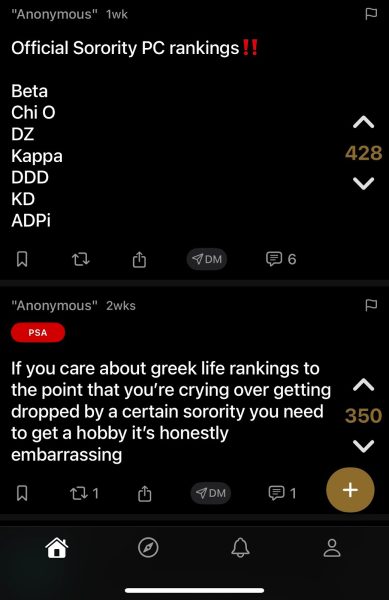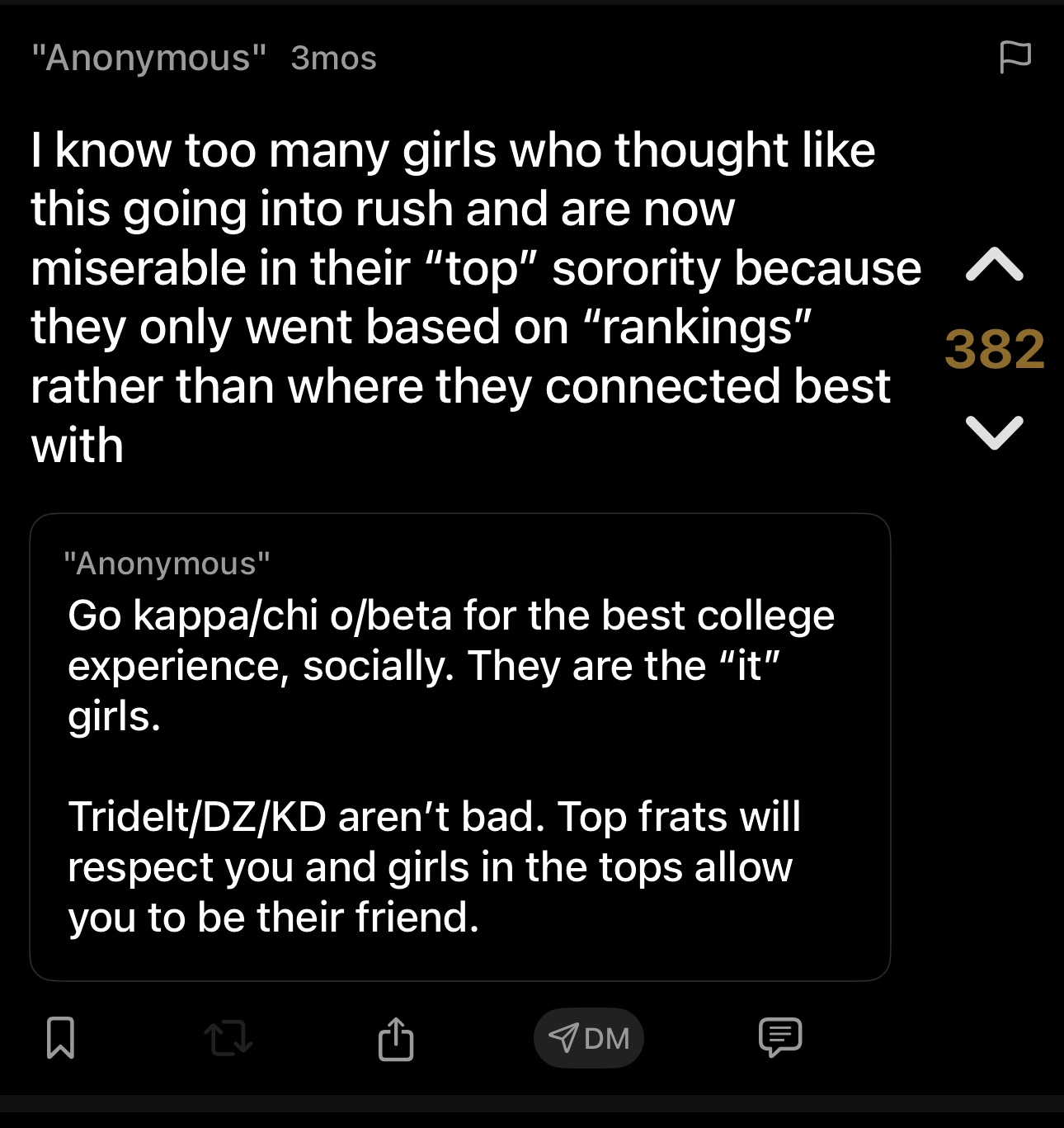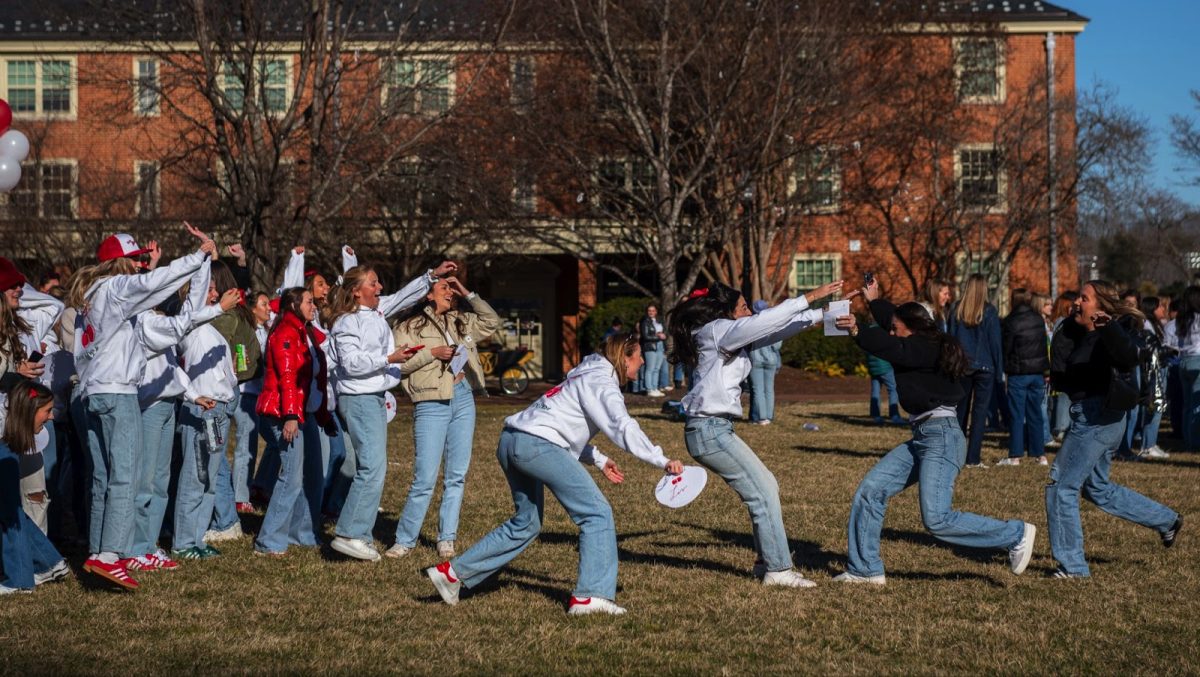Greek life dominates the social scene at Wake Forest — that is clear to the majority of students. The organizations suffocate any other conversations about campus life and general world news from happening around campus for most of the school year. The need to be socially accepted and the overarching peer pressure capture impressionable and diffident first-year students — I am confident in this fact because I was once in this position.
As a freshman, I became caught up in the scramble of undergoing panhellenic recruitment, better known as “rush.” Before my first semester at Wake Forest, I was adamantly against completing this process. I was sure that being in a sorority was not for me. And yet, here I am as a sophomore member of Alpha Delta Pi, able to look at the process from a more critical and objective mindset.

The rush process begins before official recruitment
According to Panhellenic President Sarah Haugh, 556 women registered for recruitment for the 2024 spring semester. The freshman class size is about 1,300 students, 55 percent of which are women. Many freshmen undergo the recruitment process, whether it’s in search of a group of like-minded people or for a stronger sense of community. Being in a Greek organization is meant to foster a sense of sisterhood or brotherhood, but oftentimes the process of joining one of these organizations cultivates severe judgment and condescension between members and potential new members (PNMs).
In sorority recruitment, PNMs undergo four rounds of rush that occur over three weeks. Rush days are filled with “parties,” where PNMs speak to current members. After each round, PNMs and current members participate in a mutual ranking process. Meanwhile, current members are encouraged to meet PNMs before the recruitment process even begins, but this social affair can turn into a stressful first semester of completing often mandatory “rush dates” while fulfilling the requirements of a full-time college student and sorority member.
Upperclassmen often form false positive relationships with first-year students, sharing their own stereotypes of each organization, spreading rumors and sometimes promising bids to certain people who just end up disappointed. By the end of first semester, I felt as though my sorority had scoped out and commented on the entire freshman “potential new member” population. This system of comments and ratings continued well into recruitment, in which many times the girls cycling through parties were evaluated with prior relationships and experiences in mind.
While I understand wanting to form a class of new members that uphold the social and academic expectations of one’s sorority, the whole thing exasperates me because of the underlying objectification.
Obscure rankings have serious implications
Pitting young women against each other is no new societal concept. Still, it is particularly exacerbated during the fall semester leading up to the recruitment process and during the spring rush process because of social media and Greek rankings. The popular social media app Fizz allows students of a given college community to post anonymous notes 24/7 — and many of these commentaries place young women in a negative light. Rankings of the sororities were often seen on the app during the fall, pushing into the first few weeks of January. These rankings generally did not even consider Alpha Delta Pi and Kappa Alpha Theta because they are seen as “lower tier sororities.”

This system fosters a sense of discontent among members of the freshman class as well as current sorority members — further disavowing the sense of sisterhood that is supposed to be present among members and between Panhellenic organizations. Creating a sense of hate and judgment between young women based on which Greek organization they wish to join is simply not worth anyone’s time.
Why talk about Greek rankings or recruitment when conversations about the actual state of the world could be occurring? Wake Forest students, specifically those in sororities who boast philanthropy, pretend to care about Pro Humanitate and creating positive change in the world, but what they actually like to do is tear others down for not being “good enough” in their eyes.
The severe judgments of each sorority’s stereotype or rank and of their members on social media only work to create negative and untrue assumptions by PNMs before they even meet current members from each organization. While I don’t assume that these narratives will change soon, creating a general understanding that no Greek organization is better or more elite than any other would be a great place to start.
In my personal opinion, each sorority is on the same plane, but there are individual “vibes” and levels of commitment to each. I would encourage members of Greek life to remember that in the real world, most people don’t experience such an isolated environment as Wake Forest sororities and fraternities, which only exacerbate the feelings of the Wake bubble. My parting advice – the organization you choose to spend your time in does not define your worth.


















